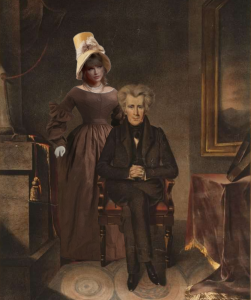In the midst of the coldest months of the year when the daylight seems hardest to catch, people’s moods have the tendency to match the bleakness of the sky. From depression to anxiety, it seems like nothing will stop until we finally reach the warm days of summer.
Across America, about five percent of people experience seasonal affective disorder, also known as seasonal depression. It’s believed to be caused by changes in the amount of daylight we receive. But most people tend to find the transition from summer to fall harder and fall to winder harder, just merely because of the weather.
“We are inside more that we tend to struggle with seasonal depression, or if you are someone who is already diagnosed with depression, your symptoms tend to increase during the winter months,” said Emily Panich, a Bradley University counselor.
Often times, seasonal depression is thought to be caused by Daylight Savings time.
“Cloudy days and colder days, you don’t feel as great. It’s dark all the time, and there are definite connections,” Cameron Anderson, a freshman biomedical premed major said. “When the weather is drowsy, people are drowsy.”
According to Panich, melatonin, the hormone that regulates sleep and our natural body clock, has been linked to depression.
When it gets darker quickly, it’s easy to find ourselves becoming lazier and more tired than usual.
While the weather might be a more direct correlation to a decrease in mental health, sometimes the events surrounding fall and winter have more of a connection than we realize.
“As kids, we were able to go outside and play all the time, but as you get older, you begin to believe it’s not as impactful. And with jobs and school, that’s all you’re focused on,” Anderson states.
At Bradley, the counseling department “[sees] students struggling more with their mood swings starting in October and then ending around April,” Panich said. However, “counseling services can jump in Jan./Feb. because students realize they did not do as well in the Fall as they expected.”
Despite changes in the weather and the increasing amount of stress in life, there are still things we can do to avoid experiencing seasonal depression in such a full capacity.
Besides adding more exercise and outdoor adventures to our lifestyles, Panich recommends potentially investing in a lightbox and sitting in front of it for around thirty minutes a day.
“Light boxes give out very bright light at least 10 times stronger than ordinary home and office lighting and have been shown to improve mood,” Panich said.
“Keep your friends close and tell them what’s going on,” Anderson said.
Panich even suggests trying dietary supplements such as Omega 3s, B Vitamins and vitamin D.
Seasonal depression is incredibly common, but there are ways to combat it.
Just because the leaves change, doesn’t mean you have to!
—
If you or someone you care about is experiencing suicidal or depressive thoughts, reach out.
Call the national suicide hotline at 1-800-273-TALK or text 741-741.
The counseling center is located in Markin Center 52, and offers an after-hours hotline at 309-677-3200.




